Why Choose Python for Scraping Booking.com Hotel Price Data?
Introduction
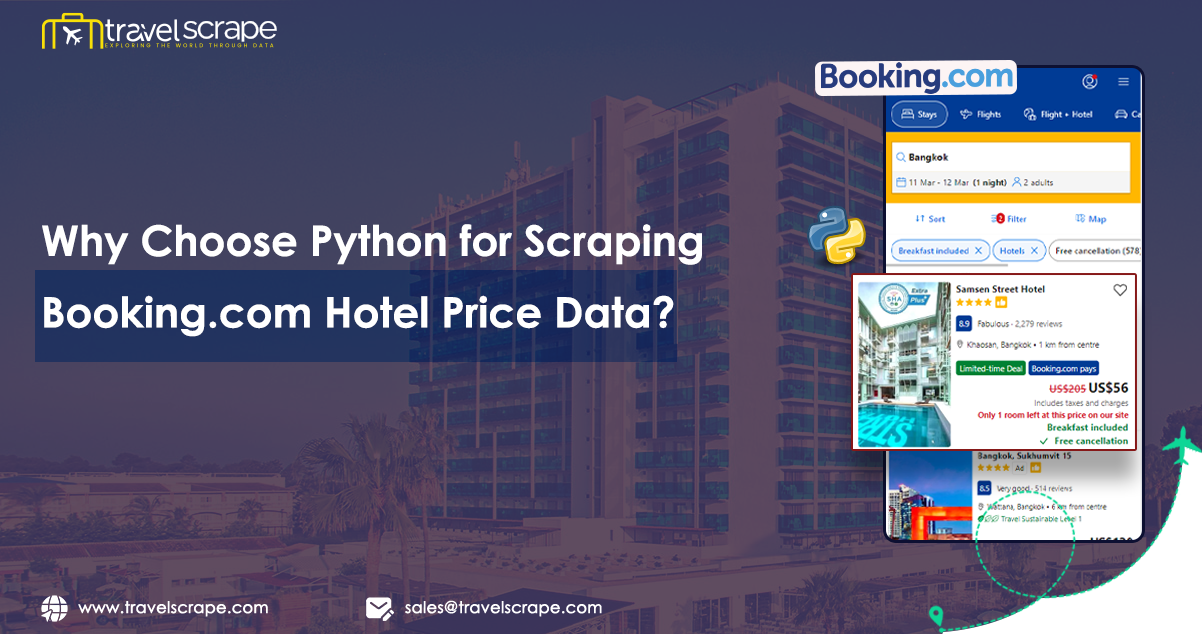
In the fast-paced and competitive hospitality industry, data-driven decision-making has emerged as a crucial strategy for businesses seeking a competitive edge. By harnessing the power of data analytics, hospitality companies can better understand consumer preferences, optimize pricing strategies, and enhance overall guest experiences.
Booking.com stands out as a leading platform for hotel reservations, offering a vast array of accommodations worldwide. With millions of listings and a user-friendly interface, Booking.com has become a go-to destination for travelers seeking accommodations suited to their preferences and budget.
Unlocking Insights with Web Scraping
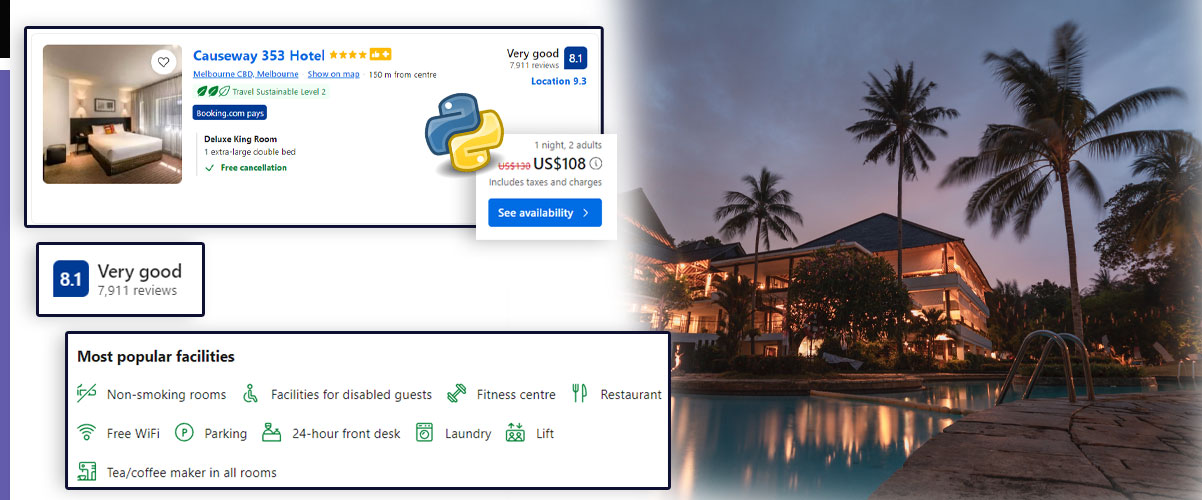
Web scraping hotel data is a powerful tool for collecting valuable data from websites, including pricing information, user reviews, and availability. This article aims to guide readers through scraping Booking.com hotel price data using Python. By leveraging this techniques, businesses can gain valuable insights into market trends, competitor pricing strategies, and customer preferences, ultimately driving informed decision-making and strategic planning within the hospitality industry.
Decoding Web Scraping Techniques
Hotel data scraping services are pivotal in modern data collection, empowering businesses to efficiently gather valuable insights from websites. This section introduces the fundamentals of web scraping hotel price data, highlighting its significance in extracting structured data from web pages.
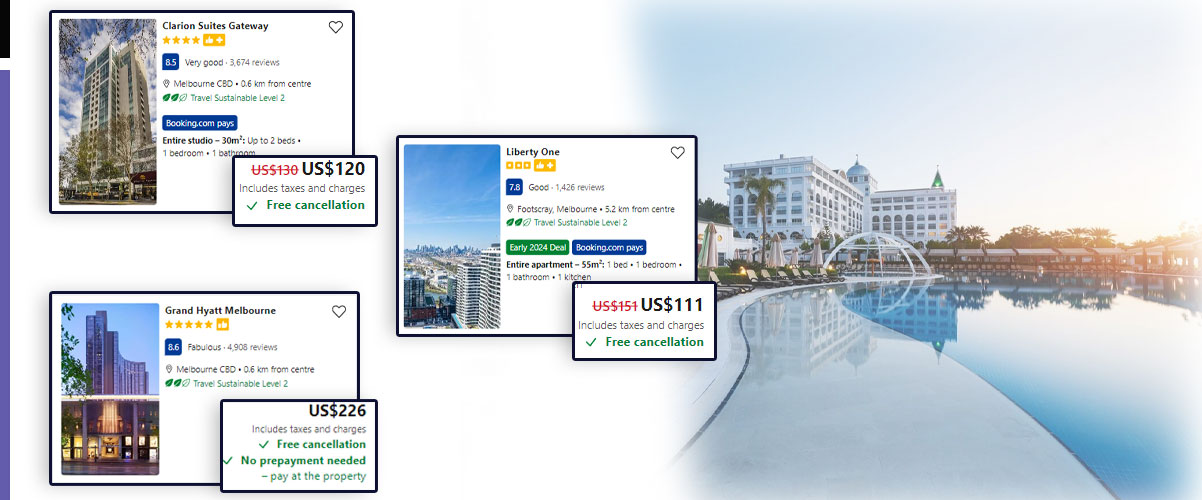
Introduction to Python Libraries
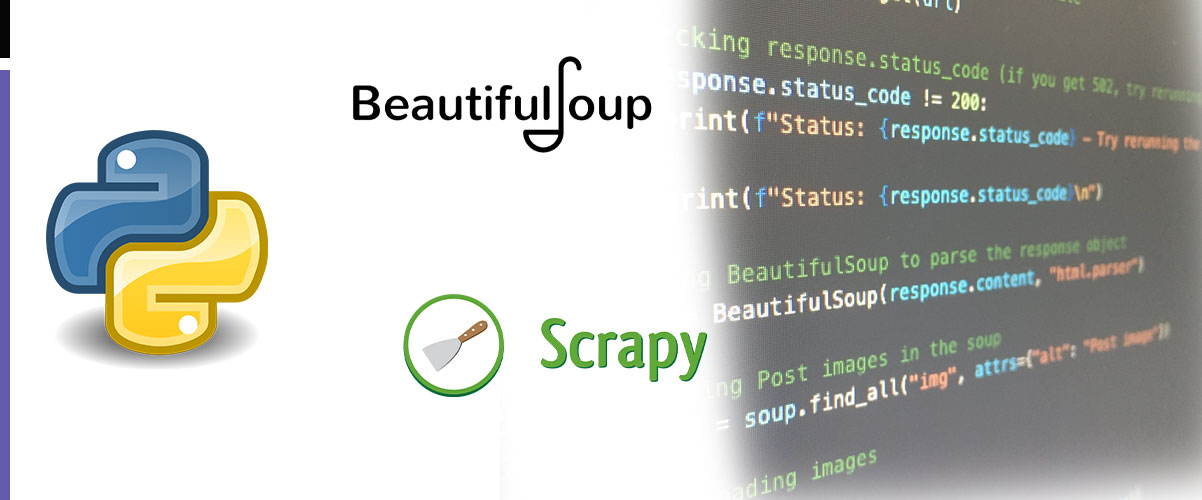
Python libraries like BeautifulSoup and requests are indispensable tools for scraping websites. BeautifulSoup simplifies the parsing of HTML and XML documents, enabling developers to navigate and extract data effortlessly. Meanwhile, the requests library facilitates HTTP requests, allowing seamless interaction with web pages to retrieve data.
Understanding HTML Structure
Delving into the HTML structure of web pages is essential for effective scraping process. By understanding the layout and hierarchy of HTML elements, developers can pinpoint the specific data elements they wish to extract. This section provides insights into identifying and targeting relevant data elements within the HTML structure for extraction.
In essence, decoding the scraping involves mastering these foundational concepts and tools to extract valuable data from websites efficiently and effectively.
Scraping Hotel Price Data from Booking.com
Scraping hotel price data from Booking.com using Python opens up many opportunities for businesses and researchers to gather valuable insights. This section provides a comprehensive walkthrough on effectively collecting this data using a hotel data scraper.
Locating and Extracting Data
Understanding how to locate and extract hotel prices, ratings, and other pertinent information is critical. By utilizing Python's BeautifulSoup library, developers can navigate the HTML structure of Booking.com's pages and target specific elements containing the desired data. This section guides readers through the process, from identifying relevant HTML tags to extracting the required data fields.
Handling Dynamic Content
Booking.com often employs dynamic content-loading techniques, making scraping more challenging. Techniques such as waiting for AJAX requests to complete or using headless browsers like Selenium can help handle dynamic content effectively. This section demonstrates these techniques, ensuring a smooth scraping even with dynamically generated data.
Preventing Detection
Implementing strategies to mimic human behavior and avoid triggering anti-scraping measures to prevent detection and potential blocks is essential. This section discusses tactics such as randomizing user agents and implementing delays between requests to evade detection and ensure uninterrupted scraping.
Significance of Scraping Booking.com Hotel Price Data
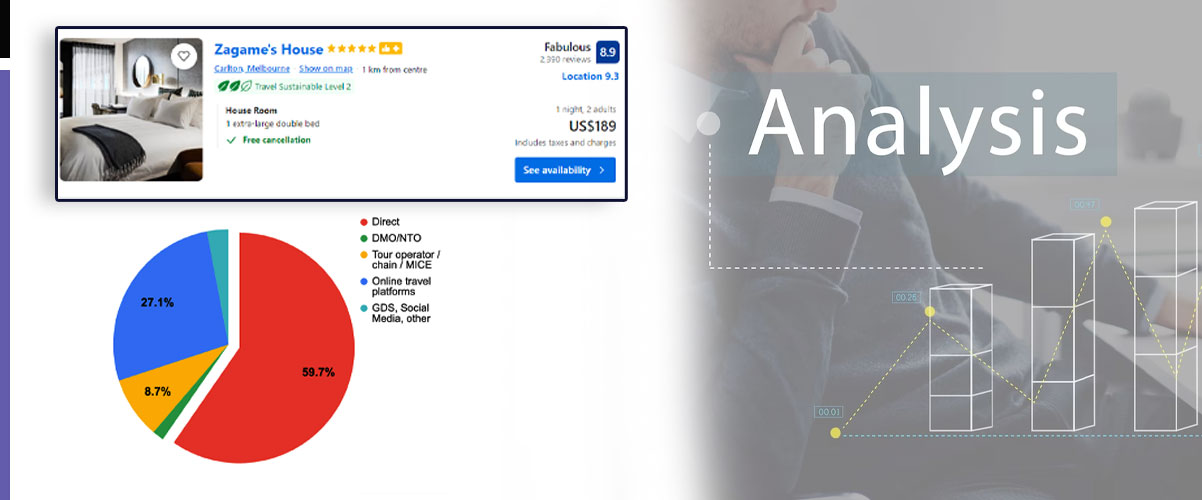
Scrape Booking.com hotel price data to gain valuable insights into market trends, competitor pricing strategies, and consumer preferences, ultimately enabling businesses to make informed decisions and optimize their operations.
Market Analysis: Booking.com hotel price data scraping provides valuable insights into market trends, competitor pricing strategies, and consumer preferences, facilitating informed decision-making.
Optimized Pricing: Accessing real-time pricing information using travel web scraping services allow businesses to adjust their pricing strategies dynamically, ensuring competitiveness and maximizing revenue.
Competitive Intelligence: Analyzing hotel price data from Booking.com enables businesses to benchmark their pricing against competitors and identify areas for improvement.
Personalized Marketing: Understanding price fluctuations and demand patterns allows for targeted marketing campaigns tailored to specific customer segments and booking preferences.
Inventory Management: Monitoring hotel price data helps optimize inventory management, ensuring availability during peak demand periods while avoiding overbooking.
Strategic Partnerships: Negotiating partnerships with hotels based on pricing data insights can lead to mutually beneficial agreements and increased customer satisfaction.
Forecasting Demand: Analyzing historical price data aids in forecasting demand trends, allowing businesses to anticipate fluctuations and optimize resource allocation.
Enhanced Customer Experience: By offering competitive pricing based on insights, businesses can enhance the overall customer experience and drive loyalty by scraping Booking.com data.
Steps Involved in Scraping Booking.com Hotel Price Data
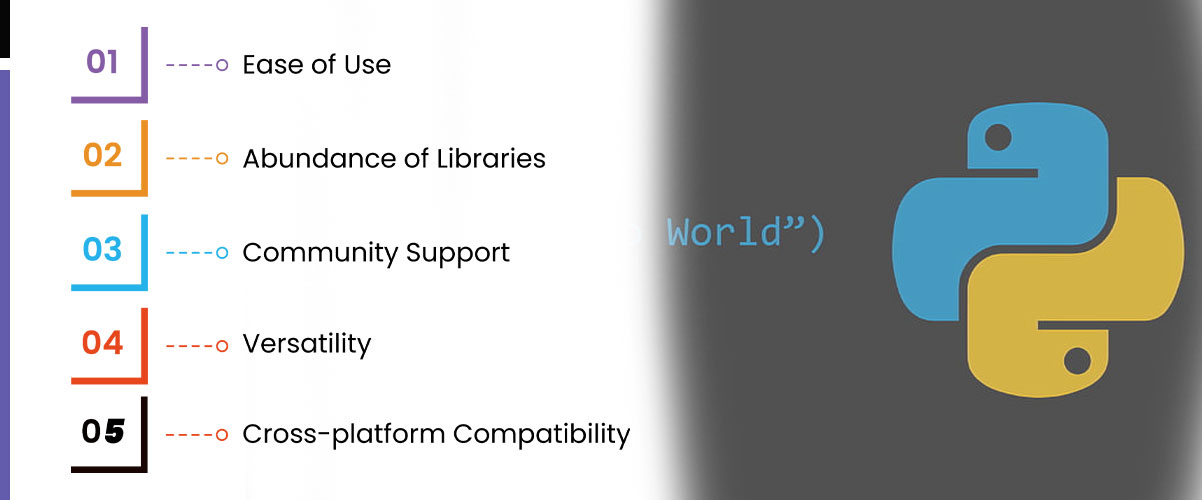
Scraping hotel price data from Booking.com using Python opens doors to valuable business insights. First, understand why we are using Python for web scraping hotel price data:
Python is a popular choice for web scraping for several reasons:
Ease of Use: Python's simple and intuitive syntax makes it accessible to beginners and experienced programmers, reducing the learning curve for scraping tasks.
Abundance of Libraries: Python boasts a rich ecosystem of libraries specifically designed for web scraping, such as BeautifulSoup and Scrapy, and requests. These libraries streamline the scraping process by providing convenient tools for parsing HTML, sending HTTP requests, and handling data extraction.
Community Support: Python has a vast and active community of developers who contribute to open-source projects, provide tutorials, and offer assistance on forums and Q&A sites. This community support makes troubleshooting issues and finding solutions to scraping challenges easier.
Versatility: Python's versatility allows it for various tasks beyond scraping, including data analysis, machine learning, and automation. This versatility makes Python attractive for organizations leveraging scraped data for various purposes.
Cross-platform Compatibility: Python is a cross-platform language, meaning that code written in Python can run on different operating systems without modification. It makes it suitable for scraping tasks across different environments.
Here's a step-by-step guide to effectively gather this data:
Import Necessary Libraries:
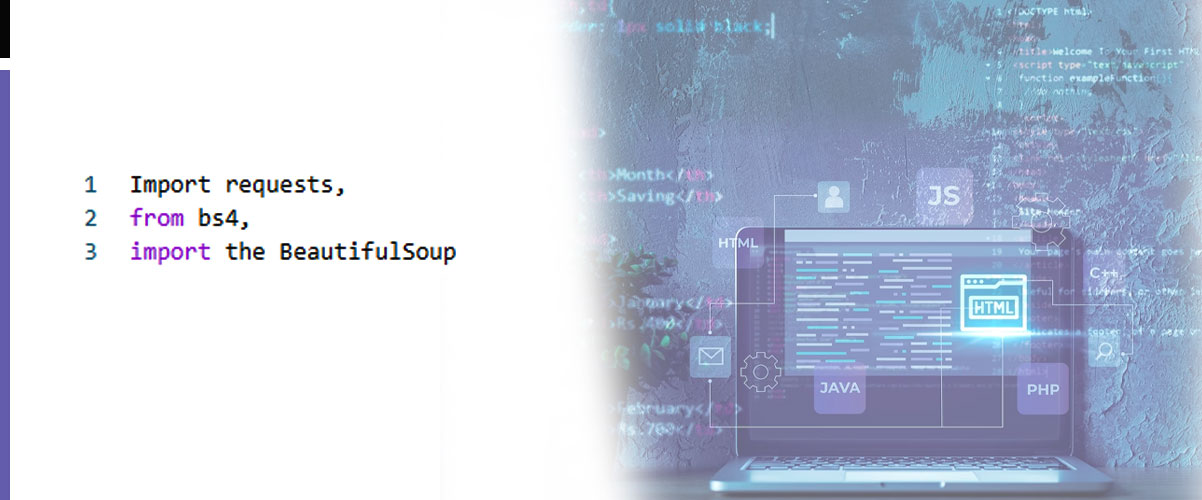
Outline the URL:
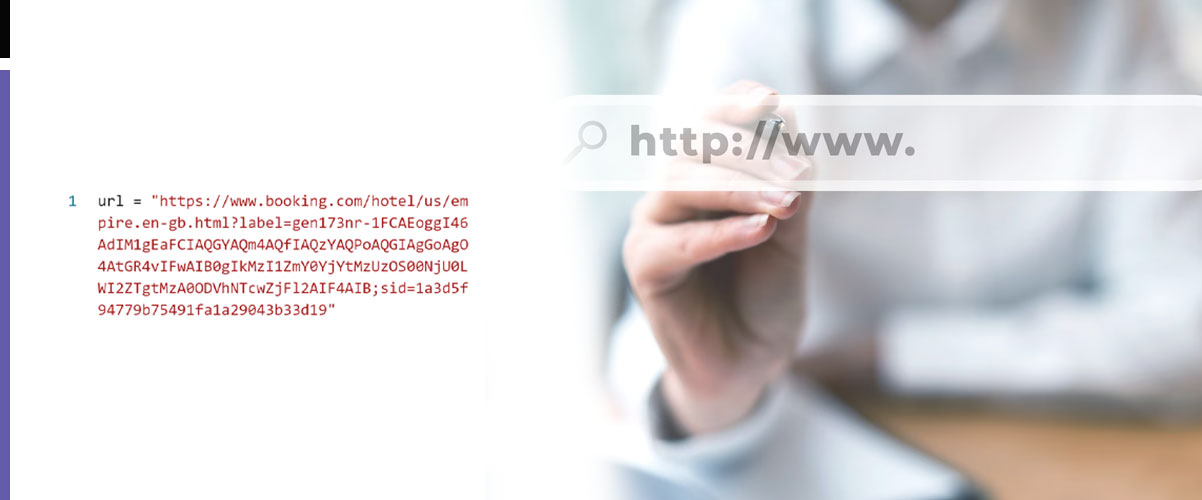
Send HTTP Request:
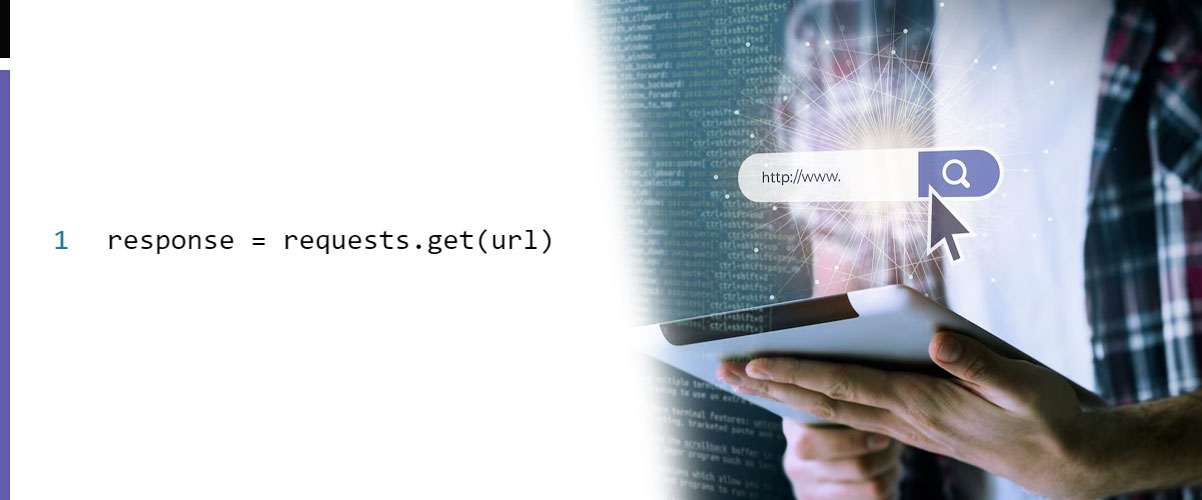
Parse HTML Content:
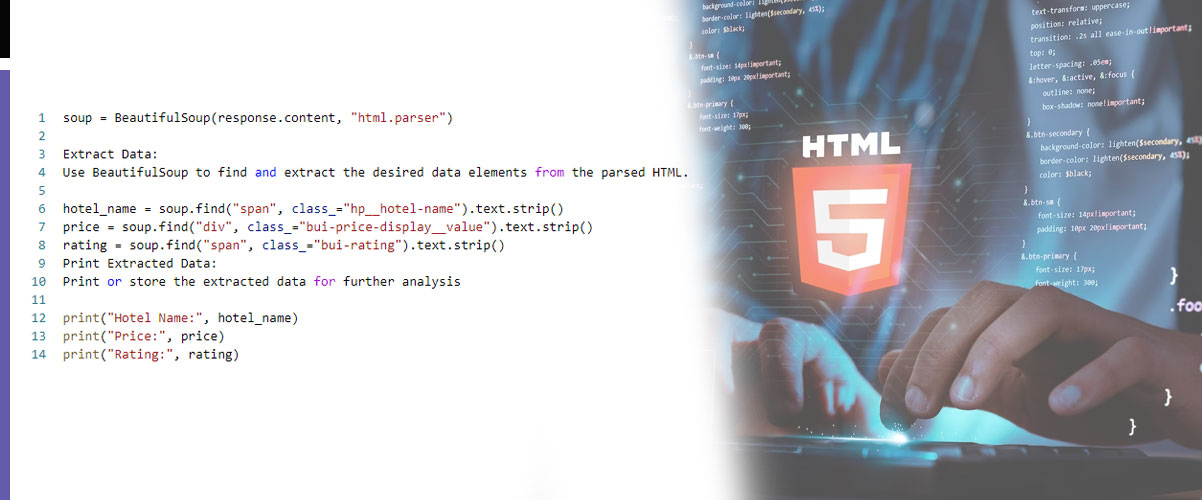
Handle Errors:
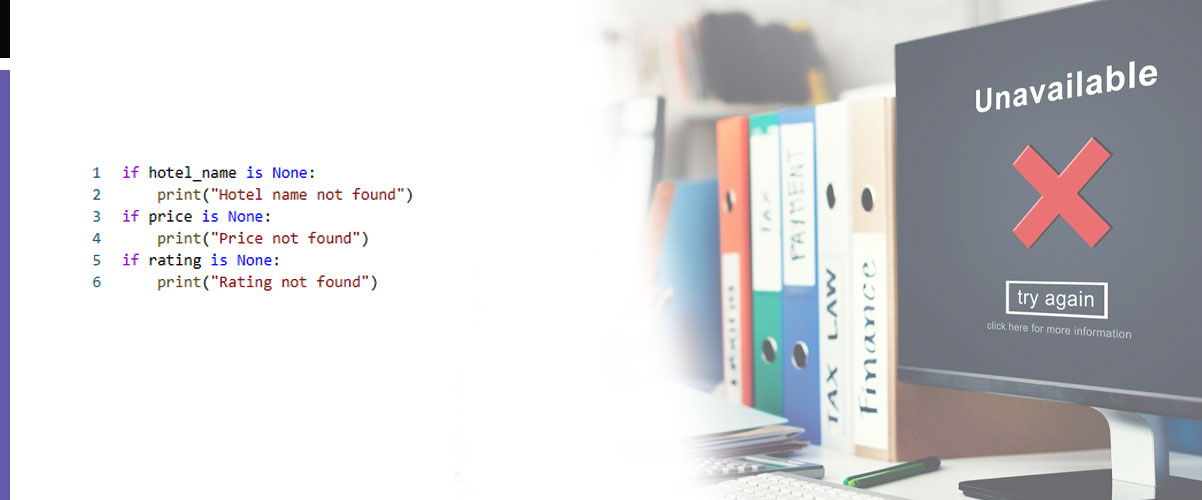
Complete Code:
Put all the steps together to create the complete code for scraping hotel price data from Booking.com.
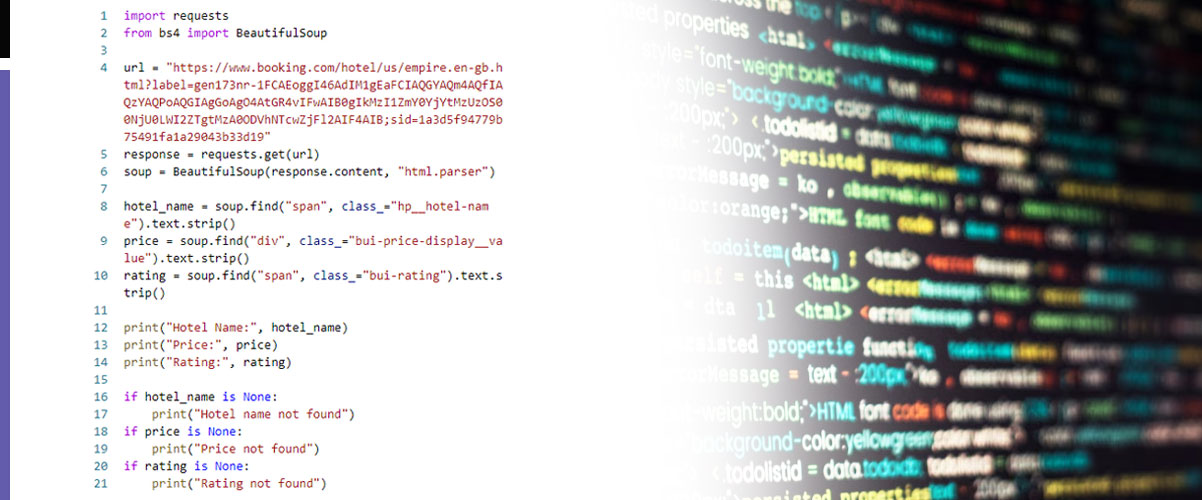
Handling Challenges and Ethical Considerations
Navigating the web scraping landscape entails grappling with technical challenges and ethical considerations. Common hurdles include encountering rate limitations and evading detection mechanisms to identify automated scraping activities. To mitigate these challenges, practitioners can employ strategies such as incorporating delays between requests, rotating IP addresses, and utilizing headless browsers to simulate human behavior. However, alongside technical finesse, ethical integrity is paramount. Adherence to ethical scraping practices involves:
- Respecting website terms of service.
- Refraining from actions that could disrupt server operations.
- Obtaining consent if personal data is involved.
Furthermore, compliance with copyright laws is essential, as scraped data may be subject to intellectual property regulations. By embracing responsible practices and acknowledging the importance of ethical conduct, practitioners can harness the power of extracting hotel price data while upholding the rights of website owners and users alike.
Conclusion: Web scraping Booking.com hotel price data using Python unlocks many insights for businesses and researchers alike. By navigating the challenges of dynamic content and rate limiting while adhering to ethical practices, practitioners can extract valuable pricing information, enabling informed decision-making and strategic planning in the hospitality industry. With the ability to analyze market trends, competitor strategies, and consumer preferences, web scraping empowers organizations to optimize pricing strategies, enhance competitiveness, and deliver enhanced customer experiences. As technology evolves, leveraging web scraping techniques remains essential for unlocking actionable insights and driving success in the ever-evolving landscape of hotel reservations.
At Travel Scrape, we specialize in scraping travel data, mainly focusing on Travel aggregators and Mobile travel app data. Our services empower businesses with enriched decision-making capabilities, providing data-driven intelligence. Connect with us to unlock a pathway to success, utilizing aggregated data for a competitive edge in the dynamic travel industry. Reach out today to harness the power of scraped data and make informed decisions that set your business apart and drive success in this highly competitive landscape.